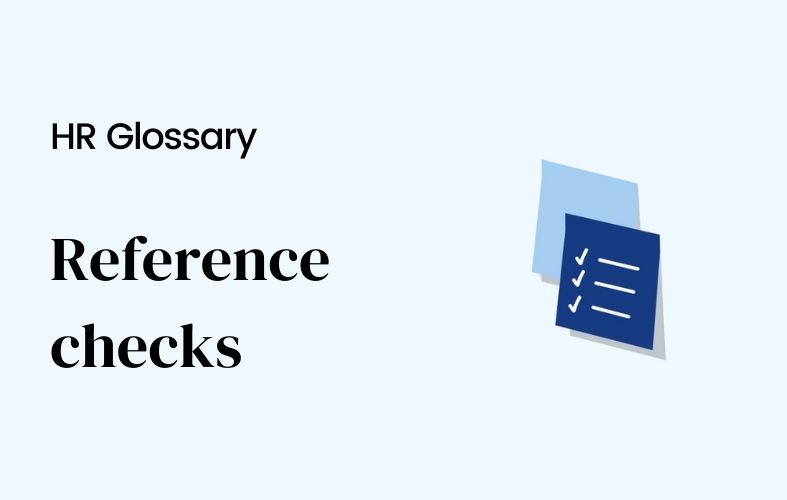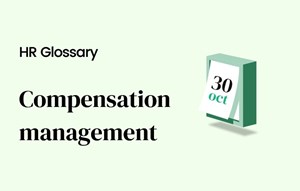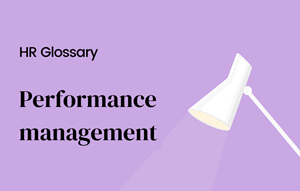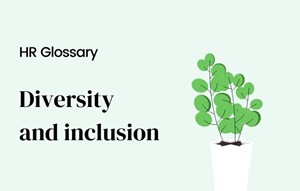Reference check

[Sommaire]
What is a reference check?
A reference check is a background check an organization makes to verify a candidate’s credentials, such as employment history and qualifications. A reference check can also be used to understand more about a candidate’s working style and set of values.
Checking references are a common and long-standing part of the hiring process. They vary by company and industry; some organizations carry out in-depth reference checks while others will do only a top-line candidate credential.
What are the pros and cons of reference checks?
Pros:
- Reference checks can provide insights that may not be apparent from a resume or interview.
- They can also verify a candidate’s qualifications and performance in previous roles.
Cons:
- Reference checks can be time-consuming, and some organizations may not have the resources to conduct them for every candidate.
- The reference check process can also be biased if the candidate chooses the references.
How to conduct a reference check?
There are a few steps you can take to ensure that your checking references are effective:
1. Choose the right references:
Ask the candidate for a list of references who can speak to their qualifications and professional achievements. If possible, try to choose references who have worked with the candidate in a supervisory capacity.
2. Prepare your questions:
Reference checks are most effective when you have a clear idea of what you want to learn from the references. Prepare a list of questions in advance so that you can make the most of your time with the references.
3. Take note of red flags:
If a reference raises any red flags about a candidate, pay close attention and follow up on these concerns. Employers check references are one of the best ways to identify potential problems with a candidate before extending an offer.
Conducting reference checks can help you verify a candidate’s soft skills, qualifications, and performance in previous roles. Reference data checks are most effective when you have a clear idea of what you want to learn from the references.
If a reference raises any red flags about a candidate, pay close attention and follow up on these concerns. A job reference check is one of the best ways to identify potential problems with a candidate before extending an offer.
Why do companies do a reference check?
A potential employer is confirming that they are hiring the right person by doing the personal references check. In some industries, reference checks are an important element of compliance because they show that due diligence has been done.
It is also a way of safeguarding a company’s culture and reputation, and picking up on details that other pre-employment checks could otherwise miss.
Making the reference check part of the interview process while hiring also reassures job applicants. It shows the candidate that the employer cares about the integrity of their employees. This, in turn, gives the candidate reassurance that they will be working in a safe environment with qualified co-workers.
Why are references important when hiring?
References are important because of the way they provide an extra layer of information that is reassuring for the new employer, especially in light of a YouGov survey that shows 10% of all respondents admitted to lying on their CVs for a specific job title.
By providing false information on a CV, candidates may put both themselves and their potential employers at risk. False information can also reflect negatively on the candidate – if someone is prepared to lie on their CV, what does this say about their general levels of integrity?
Doing a thorough reference check can help uncover falsehoods and give hiring managers some comfort that they are hiring honest individuals who can be trusted in the future.
Reference check dos and don’ts :
- Do check references after offering the role. The CIPD suggests it is good practice to request references after offering employment to the candidate. Making the job offer conditional on receipt of satisfactory references means the organization can withdraw the job offer if references are not satisfactory.
- Do think about what you want the reference check to tell you and plan questions accordingly.
- Do use a reference check to verify the candidate’s work and education history. Of the 10% of respondents who said they had lied in the past on the CVs, 40% claimed to have lied about their qualifications, 30% lied about their experience, and 35% lied about the length of time they spent in a job.
- Do create a standard reference check policy. This will help ensure a more consistent reference checking process across the business.
- Do feel free to contact references who have not been provided by the candidate. However, make sure you seek consent from the candidate before doing so.
- Don’t use the reference check to ask questions that could lead to discrimination. Questions such as marital status, religion, sexuality, or disability should not affect the hiring decision.
- Don’t limit your reference check to personal contacts. Get in touch with professional references as well.
- Don’t use reference checks in place of other pre-employment checks such as right-to-work checks, criminal record checks, and medical checks. It should be used alongside these other pre-employment checks.
Reference check questions:
- How long did the candidate work for you?
- In what capacity did the candidate work for you?
- Would you describe the candidate as a reliable employee?
- Did the candidate take sick days? If so, how many?
- Was the candidate ever disciplined for any reason?
- Is there anything else you can tell me about the candidate that would be relevant to their performance in this role?
- Would you be happy to provide a reference for the candidate in the future?
Hiring managers should be aware of the pitfalls when conducting a reference check. Reference checking is an essential part of the hiring process, but it is not a foolproof method. It should be used alongside other pre-employment checks, such as right-to-work checks and criminal record checks.


